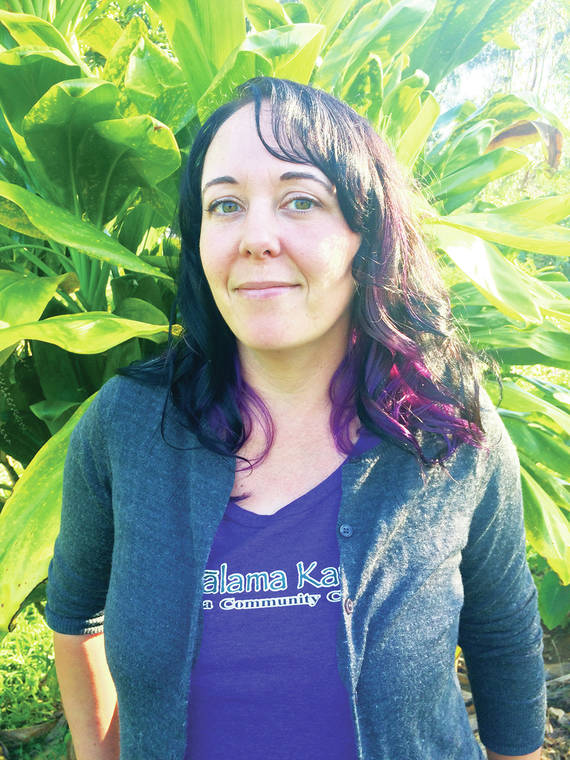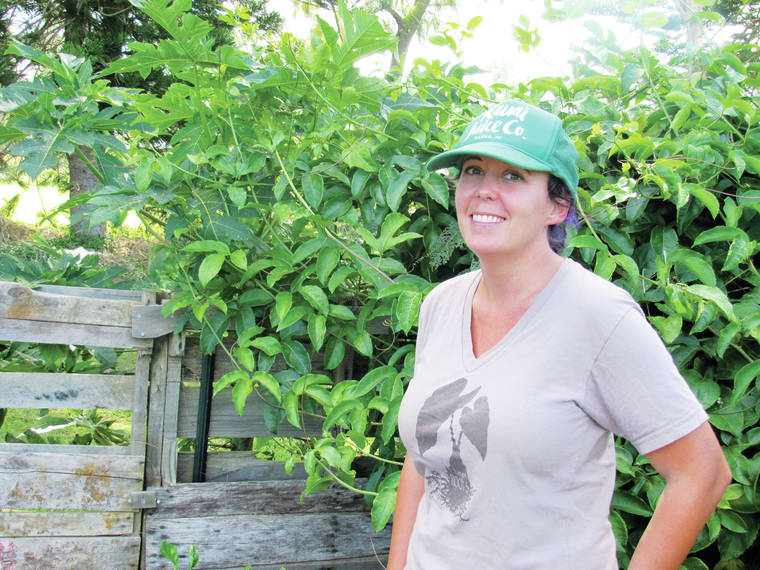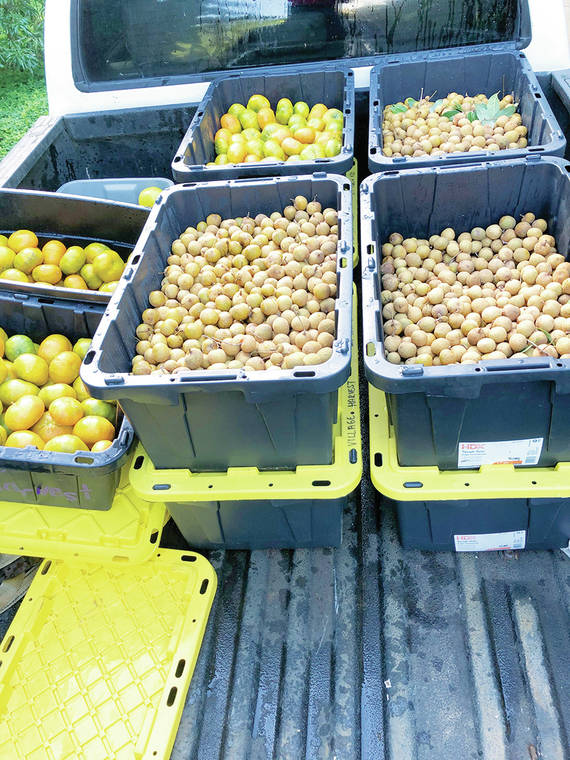In April and May, Malama Kaua‘i helped deliver 6,000 bags of local produce to families in need. The money from those purchases went to local farmers.
This is just one example of how this nonprofit is helping the community.
Throughout the coronavirus pandemic, many nonprofits and organizations have centered their responses on helping the community. And some, like Malama Kaua‘i, have been able to leverage their missions at the same time.
The nonprofit, founded in 2006, focuses on action toward a sustainable Kaua‘i by advocating and educating.
“The majority of our programming is focused on increasing local food production, consumption and access,” Executive Director Megan Fox said. “Our COVID-related projects are focused on the intersection of supporting our farmers and connecting them with the public.”
Fox moved to Kaua‘i about a decade ago, and almost immediately got involved.
“I volunteered with most of the nonprofits on island to get a feel for things, and ended up settling in with Malama Kaua‘i, and eventually got hired. I haven’t turned around since. It’s just so fulfilling to work with impassioned and intelligent people who care so much about their community.”
“I think my role and the role of the organization is always changing, and that is what makes us effective,” Fox said. “We can be pretty dynamic and pivot at a moment’s notice to fill in gaps where we are needed.”
During the pandemic, Malama Kaua‘i has provided one of the most up-to-date and comprehensive lists of locally farmed food, open markets, farm-delivery programs for kupuna, roadside stands, gardening resources, food-safety material and food pantries, Fox said.
“We have also been involved in leading a few projects involving getting farmer food bags out to those in need, from houseless and homebound community supported agriculture (CSA) deliveries to drive-thru CSA bag pickups at various school sites across the island,” Fox said.
Malama Kaua‘i’s work goes beyond that, also helping farmers find financial support independently, which in turn will help the community at large.
“We’ve also been working to support our farmers with mini-grants to strengthen their ability to keep providing the island food, and are fundraising to continue to do that,” Fox said.
In the times of safer-at-home orders and quarantines, it’s important to take a look at the community around us and invest in changes, Fox explained.
“These types of emergencies put the spotlight on our lack of self-sufficiency for our basic needs, like food, housing, health care, etcetera, and a lot more people get interested in our work during these times,” Fox said. “I really hope that interest helps create lasting change in our systems.”
For Fox, the most rewarding part of her job is watching the community, both those who grow food and residents, come together to take care of one another. “They always do when it matters most.” If she had more time, she sid she wishes she could thank people more.
“We have a super-small staff, and we could never do anything we do without the hundreds of volunteers and donors who make these things happen,” she said. “I always seem to be moving at light speed on projects but always behind on thank-you cards and making extra time to let people know how much we all truly value and appreciate their support and involvement.
“I love that people get involved because they care and not because they want recognition. I just know I could always do better at letting them know how much they’re really appreciated.”
•••
Sabrina Bodon, public safety and government reporter, can be reached at 245-0441 or sbodon@thegardenisland.com.





